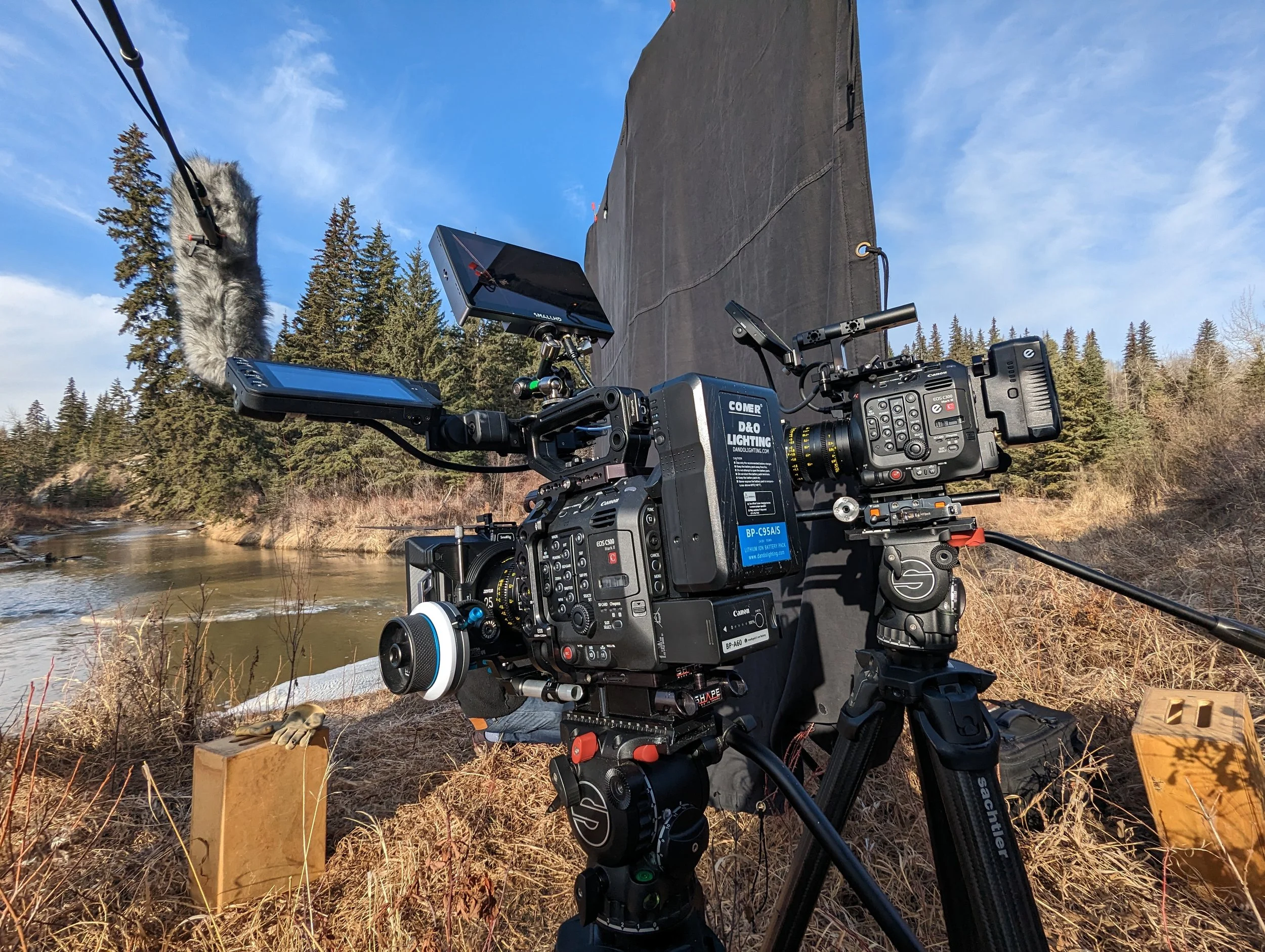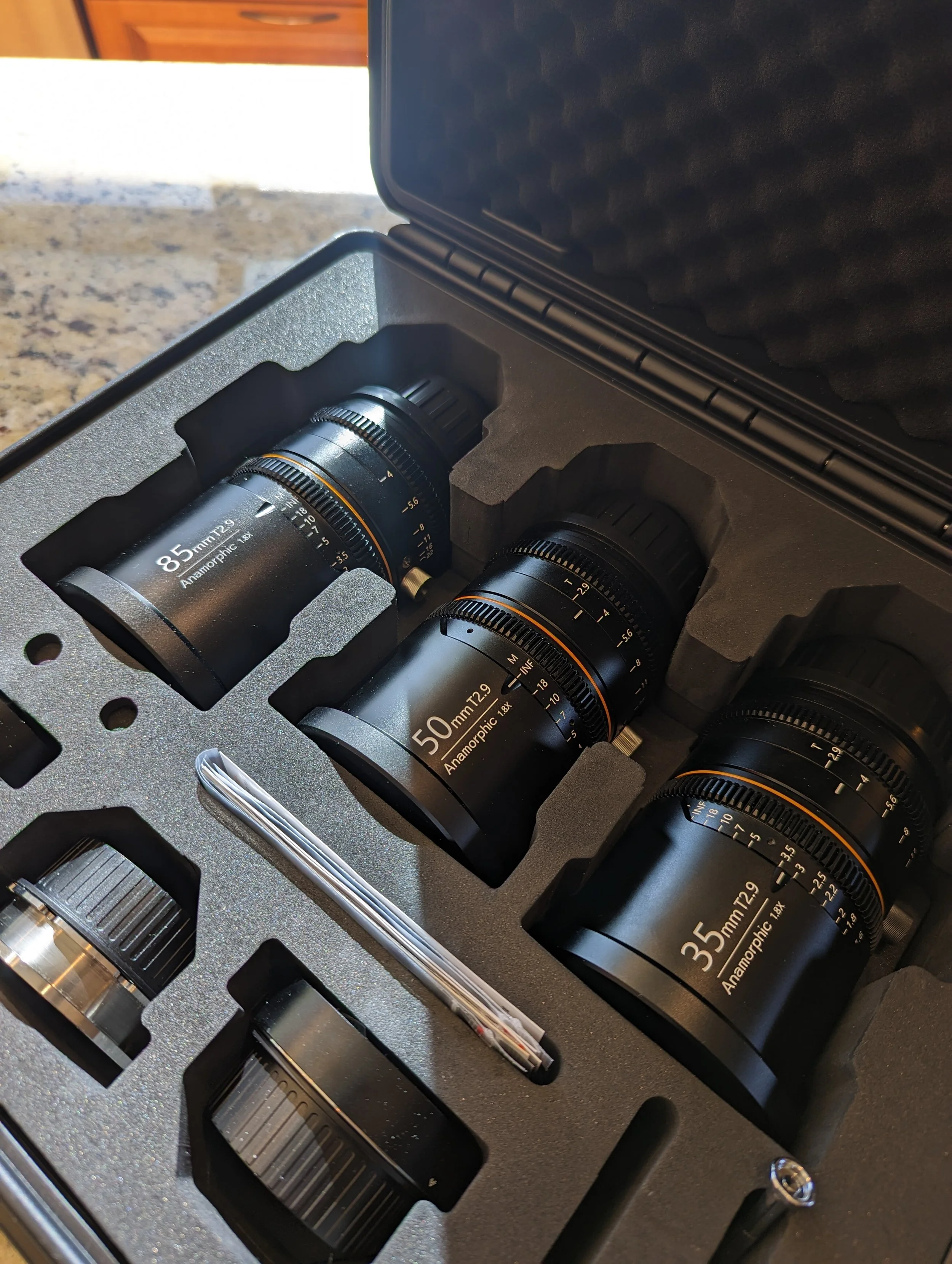What does a cinematographer do?
If you're looking to hire a video production company, it's important to understand the difference between a cinematographer and a videographer. While both roles involve capturing visuals through a camera, there are distinct differences in their responsibilities and skill sets.
A cinematographer, also known as a director of photography, is responsible for the overall look and feel of a film or video production. They work closely with the director to bring their creative vision to life, and use a variety of technical techniques to achieve the desired result. This includes everything from camera angles and framing to lighting and color grading.
Cinematographers are highly skilled professionals who have extensive knowledge of camera and lens technology, as well as an artistic eye for composition and storytelling. They work closely with the rest of the production crew to ensure that every shot is executed according to the director's vision, and that the final product is visually stunning and emotionally impactful.
In contrast, a videographer is typically responsible for capturing footage of events or interviews, without the same level of creative input as a cinematographer. While they may have some knowledge of camera techniques and lighting, their primary focus is on capturing the action in a straightforward and natural way.
So if you're looking to create a high-quality promotional video, corporate film, or other professional production, it's important to work with a video production company that has a skilled cinematographer on staff. This will ensure that your final product looks and feels like a true masterpiece, with stunning visuals and a compelling story
What do Videographers do?
Videographers, on the other hand, are more focused on capturing footage of events and interviews in a straightforward and natural way. They typically work with smaller crews and have less creative input than cinematographers. Their primary goal is to capture the action with a steady hand and good-quality camera equipment.
While videographers may not have the same level of technical expertise as cinematographers, they are still important members of a video production team. They have a keen eye for capturing the right moments and ensuring that the footage is well-lit and properly composed. They are also responsible for editing the footage to create a final product that is visually appealing and tells a compelling story.
In conclusion, if you're looking to create a professional video production, it's important to work with a team that includes both a cinematographer and a videographer. A cinematographer will ensure that your video has a unique visual style and is artistically pleasing, while a videographer will capture the action in a natural and straightforward way. Together, these two roles can create a final product that tells a compelling story and leaves a lasting impression on your audience.
What kind of qualifications do you need to become a cinematographer?
When it comes to creating high-quality video content, it's important to understand the difference between a cinematographer and a videographer. While both roles involve capturing footage for film and video projects, they have distinct differences in terms of skillset and responsibilities.
A cinematographer, also known as a Director of Photography (DP), is typically responsible for the artistic and technical aspects of the film or video production. They work closely with the director to develop a vision for the project and determine the style, mood, and overall look of the visuals. A cinematographer is also responsible for selecting the camera and lenses used, as well as lighting the scenes and framing shots for maximum impact.
In contrast, a videographer is primarily focused on capturing footage of the subject or event. While they may have some input in terms of camera angles and composition, their main responsibility is to ensure that the footage is captured clearly and effectively.
To become a cinematographer, there are a number of qualifications and skills that are essential. Firstly, a degree in film, media, or photography is often preferred, although not always necessary. Experience in shooting and lighting techniques is also highly valued, as well as knowledge of camera equipment and software used in post-production.
Other important skills include the ability to work well with a team, including the director, camera operators, and other crew members. A strong sense of visual storytelling is also critical, as well as an understanding of color theory, image composition, and camera movement.
What type of equipment does a cinematographer use?
When it comes to creating stunning visuals that tell a story, the role of a cinematographer is crucial. However, many people confuse the role of a cinematographer with that of a videographer. While both professionals are involved in capturing moving images, their roles differ significantly.
A cinematographer is responsible for the artistic and technical aspects of capturing a film's visuals. They work closely with the film director to create a specific look and mood that fits the story's narrative. Cinematographers are typically highly trained in the art of photography, and they use a variety of technical and creative techniques to capture shots that are visually stunning and emotionally engaging.
On the other hand, a videographer is primarily focused on capturing live events, such as weddings or corporate events. They may also be involved in filming promotional videos or online content. Videographers are typically less involved in the creative process than cinematographers and may not have the same level of technical skill or experience.
So, what type of equipment does a cinematographer use? The answer is, it depends. The specific tools and equipment used by a cinematographer will vary depending on the project's needs and budget. However, some of the most common pieces of equipment used by cinematographers include high-quality cinema cameras, cinema lenses, lighting equipment, stabilizers & tripods.
Cinematographers may also work with a team of professionals, including camera operators, gaffers, and grips, to ensure that every shot is captured perfectly.
Anamorphic Lenses
Here are some amazing, and affordable 1.8x anamorphic lenses by Great Joy



